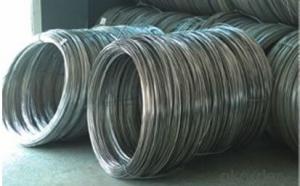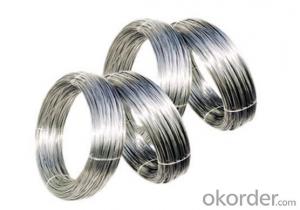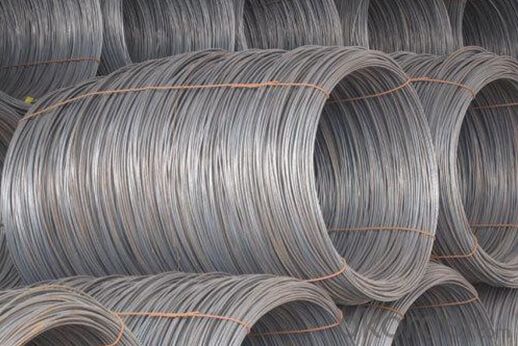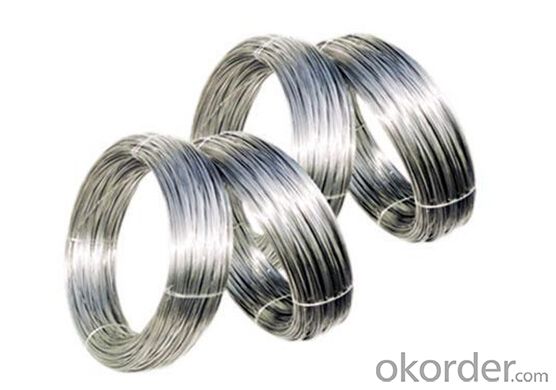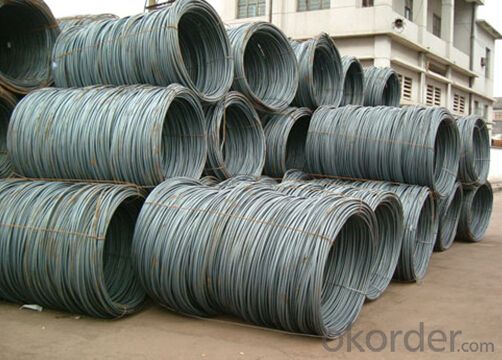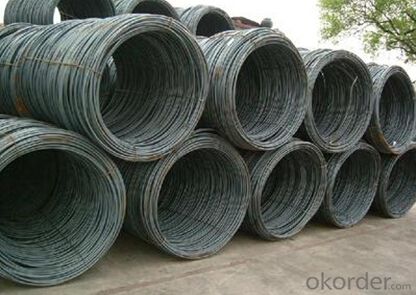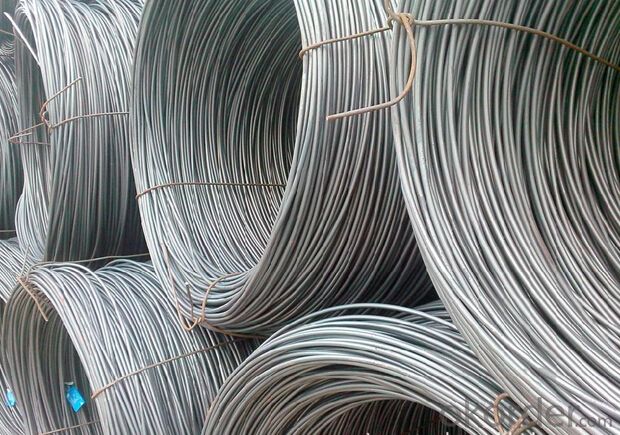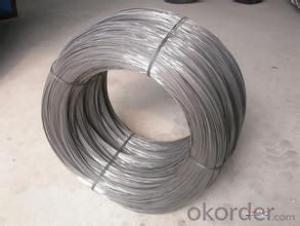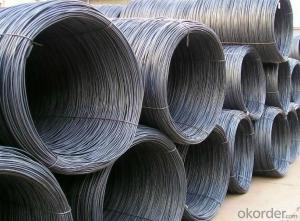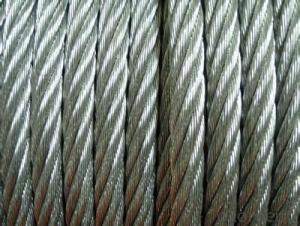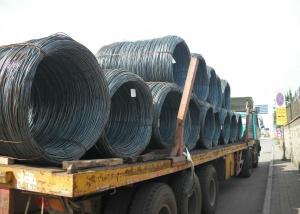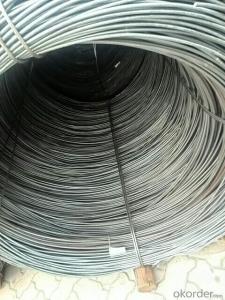High Carbon Steel Wire Rods for PC-SWRS82B
- Loading Port:
- Tianjin
- Payment Terms:
- TT or LC
- Min Order Qty:
- 25 m.t.
- Supply Capability:
- 10000 m.t./month
OKorder Service Pledge
OKorder Financial Service
You Might Also Like
Specification
High Carbon Steel Wire Rods for PC-SWRS82B
Specification
Packing: | With Bundles or Standard Seaworthy Packing |
Size: | Diameter 5.5mm--10mm |
Standard: | GB/ASTM/JIS/DIN |
Productivity: | 500 Ton/Month |
Unit Price/Payment: | T/T With 30% Advance Payment, The Balance Against |
HS Code: | 7214200000 |
Min. Order: | 1 Ton |
Composition: | Ferrous Steel Scrap |
Technique: | Cold Drawn |
Surface Treatment: | Plain |
Steel Grade: | Q195, Q215, Q235, SAE 1006, 1008,1010,1012,1016,1018, ect |
Application: | Structural Steel Bar |
Type: | Carbon Steel Bar |
Shape: | Round, Long |
Chemical Composition
Grade | Chemical Compositions | ||||||
C | Si | Mn | Cr | P | S | Cu | |
SWRS 82B | 0.79~0.84 | 0.12~0.32 | 0.60~0.90 | ≤0.35 | ≤0.025 | ≤0.025 | ≤0.20 |
SWRS 77B | 0.75~0.81 | 0.12~0.32 | 0.60~0.90 | ≤0.35 | ≤0.025 | ≤0.025 | ≤0.20 |
Company Information
CNBM International Corporation is the most import and export platform of CNBM group(China National Building Material Group Corporation) ,which is a state-owned enterprise, ranked in 270th of Fortune Global 500 in 2015.
With its advantages, CNBM International are mainly concentrate on Cement, Glass, Iron and Steel, Ceramics industries and devotes herself for supplying high quality series of refractories as well as technical consultancies and logistics solution.
After-sale service | CNBM provides the services and support you need for every step of our cooperation. We’re the business partners you can trust; you can relax and get on with doing business. |
For any problem, please kindly contact us at any your convenient time, we’ll reply you in our first priority within 24 hours | |
Advantages | Industry experience over 20 years. |
Shipment of goods -More than 70 countries worldwide. | |
The most convenient transport and prompt delivery. | |
Competitive price with best service. | |
High technical production line with top quality products. | |
High reputation based on best quality products. |
Products Show
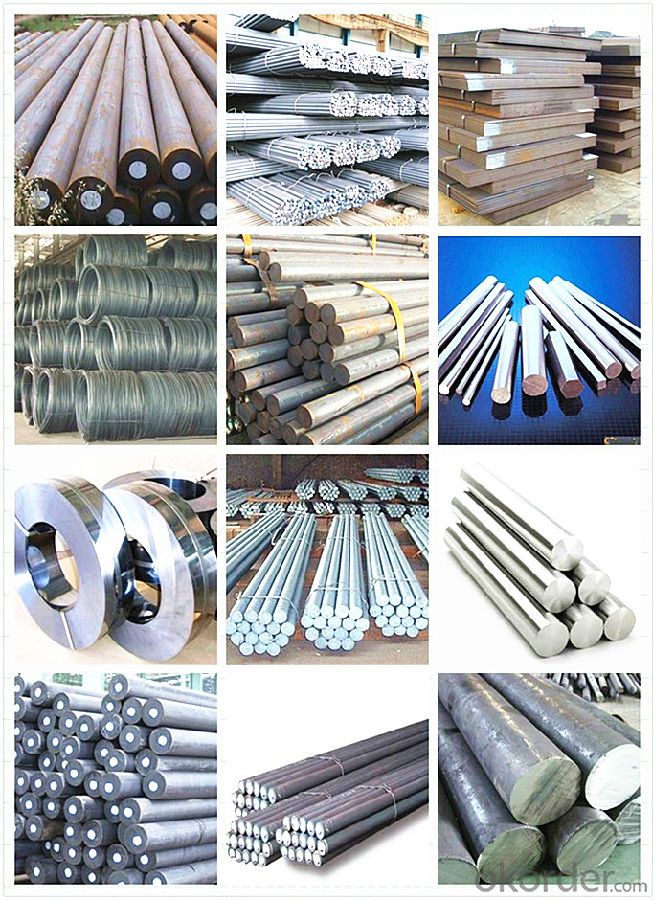
FAQ
Are you a trading company or manufacturer? | Manufacturer |
What’s the MOQ? | 3 metric ton |
What’s your delivery time? | 15-35 days after downpayment received |
Do you Accept OEM service? | Yes |
what’s your delivery terms? | FOB/CFR/CIF |
What's the Payment Terms? | 30% as deposit,70% before shipment by T/T |
Western Union acceptable for small amount. | |
L/C acceptable for large amount. | |
Scrow ,Paybal,Alipay are also ok | |
Why choose us? | Chose happens because of quality, then price, We can give you both. |
Additionally, we can also offer professional products inquiry, products knowledge train (for agents), smooth goods delivery, excellent customer solution proposals. | |
What's your available port of Shipment? | Main Port, China |
What’s your featured services? | Our service formula: good quality+ good price+ good service=customer's trust |
Where are your Market? | Covering more than 160 countries in the world |
- Q: What are the different oil and gas grades of special steel?
- There are several different oil and gas grades of special steel that are commonly used in the industry. These grades are specifically designed to withstand the harsh environments and high temperatures associated with oil and gas exploration and production. Some of the most commonly used grades include: 1. API 5CT: This grade is specifically designed for use in casing and tubing applications. It has high strength and excellent resistance to corrosion, making it ideal for use in demanding oil and gas environments. 2. API 5L: This grade is used for pipeline transportation systems in the petroleum and natural gas industries. It has excellent mechanical properties and is designed to withstand high pressure and temperature conditions. 3. NACE MR0175/ISO 15156: This grade is compliant with the NACE MR0175/ISO 15156 standard, which specifies the requirements for the use of metallic materials in oil and gas production environments containing H2S (sour service). These grades have high resistance to sulfide stress cracking and hydrogen-induced cracking. 4. Duplex Stainless Steel: This grade is used in applications where high strength, corrosion resistance, and resistance to stress corrosion cracking are required. It is commonly used in offshore oil and gas production, as well as in subsea equipment. 5. Super Duplex Stainless Steel: This grade offers even higher strength and corrosion resistance than duplex stainless steel. It is commonly used in demanding oil and gas applications, such as subsea and deepwater equipment. These are just a few examples of the different oil and gas grades of special steel available in the market. The selection of the appropriate grade depends on the specific application, operating conditions, and requirements of the project. It is crucial to consult with experts or refer to industry standards and specifications to ensure the right grade is chosen for a particular oil and gas project.
- Q: What are the specific requirements for special steel used in the mining industry?
- To ensure the durability, strength, and resistance to harsh conditions of special steel used in the mining industry, certain requirements must be met. Key requirements for this type of steel include: 1. High tensile strength is necessary to withstand heavy loads and resist deformation under extreme conditions. This enables the steel to endure the pressure, impact, and stress encountered during mining operations. 2. Excellent wear resistance is essential to prevent premature failure and increase the lifespan of mining equipment in abrasive environments. Rocks and ores can cause significant wear on the equipment. 3. High corrosion resistance is crucial in highly corrosive mining environments, such as underground mines or areas near water bodies. The steel should be able to withstand exposure to chemicals, moisture, and other corrosive agents to prevent rusting, pitting, and other forms of corrosion that weaken the steel. 4. Excellent toughness is required to withstand heavy impacts and vibrations that mining equipment is subjected to. If the steel is not tough enough, fractures can occur. The steel must be able to absorb energy from impacts and vibrations without fracturing, ensuring the safety and reliability of the equipment. 5. Good heat resistance is necessary to withstand high-temperature mining operations, such as smelting and refining processes. The steel should not lose its strength or undergo deformation under elevated temperatures. 6. Good machinability is important to allow for easy formation of complex shapes or structures. This facilitates the manufacturing process of mining equipment and components. Overall, meeting these requirements is crucial for ensuring the reliability, durability, and safety of mining equipment in demanding mining environments.
- Q: How does special steel contribute to the pharmaceutical aftermarket industry?
- Special steel plays a significant role in the pharmaceutical aftermarket industry by providing high-quality materials for manufacturing critical components such as machinery, equipment, and tools. The unique properties of special steel, such as corrosion resistance, strength, and durability, ensure the production of efficient and safe pharmaceutical products. Additionally, special steel's ability to withstand extreme temperatures and pressures enables the creation of advanced processing systems, leading to improved efficiency and productivity in pharmaceutical manufacturing.
- Q: How does special steel contribute to the textile industry?
- Special steel contributes to the textile industry by providing high-strength and durable components for textile machinery, such as looms, knitting machines, and textile processing equipment. The use of special steel in these machines ensures improved performance, precision, and longevity, thereby enhancing productivity and efficiency in textile manufacturing processes. Additionally, special steel's resistance to corrosion and wear helps maintain the quality and reliability of textile machinery, minimizing downtime and maintenance costs for manufacturers.
- Q: Can special steel be used in power generation applications?
- Yes, special steel can be used in power generation applications. Special steel offers excellent strength, corrosion resistance, and high-temperature stability, making it suitable for various power generation components such as turbines, generators, boilers, and heat exchangers. It ensures durability, reliability, and efficient performance in demanding power generation environments.
- Q: What is the process of manufacturing special steel?
- The process of manufacturing special steel involves several steps to ensure the production of high-quality and durable steel with specific properties. 1. Raw Materials Selection: The first step is to carefully select the raw materials required for making special steel. This includes iron ore, coal, and other alloying materials such as chromium, nickel, and manganese, depending on the desired properties of the final product. 2. Melting: The selected raw materials are then melted in a large furnace, often through the use of electric arc furnaces or basic oxygen furnaces. These furnaces heat the raw materials to extremely high temperatures, typically around 1,600 to 2,000 degrees Celsius, to transform them into molten metal. 3. Refining: Once the raw materials are melted, the molten metal undergoes a refining process to remove impurities. This is done through techniques like degassing, desulphurization, and deoxidation, ensuring that the steel is free from unwanted elements that may negatively impact its properties. 4. Alloying: After refining, alloying elements are added to the molten metal to achieve the desired properties. These elements can modify the steel's strength, hardness, corrosion resistance, and other characteristics. The specific alloying elements and their proportions depend on the intended application of the special steel. 5. Continuous Casting: The molten steel is then poured into a continuous casting machine, which solidifies it into semi-finished products called billets, blooms, or slabs. This continuous casting process ensures a consistent and uniform structure throughout the steel. 6. Hot Rolling: The semi-finished products are then reheated and passed through a series of hot rolling mills. This process involves reducing the thickness and shaping the steel into various forms such as bars, rods, plates, or sheets, depending on the intended use. 7. Heat Treatment: After hot rolling, the steel may undergo heat treatment processes such as annealing, quenching, tempering, or case hardening. These treatments help to further enhance the mechanical properties of the steel, such as its hardness, toughness, and ductility. 8. Finishing: The final step involves surface finishing and quality control measures. The steel is inspected for any defects or imperfections that may have occurred during the manufacturing process. Surface treatments like pickling or galvanizing can also be applied to enhance the steel's appearance and protect it from corrosion. Overall, the process of manufacturing special steel is a complex and precise operation that requires careful selection of raw materials, melting, refining, alloying, continuous casting, hot rolling, heat treatment, and finishing. This ensures that the resulting steel meets the specific requirements and performance characteristics demanded by various industries.
- Q: How does special steel perform in cryogenic gas environments?
- Special steel performs well in cryogenic gas environments due to its unique properties. It has excellent resistance to low temperatures and maintains its strength and toughness even at extremely cold temperatures. This makes it highly suitable for applications in cryogenic gas environments where traditional steel may become brittle or lose its strength. Additionally, special steel's resistance to corrosion and thermal expansion further enhances its performance in these extreme conditions.
- Q: How does special steel contribute to improving product efficiency in energy-intensive processes?
- Special steel plays a crucial role in improving product efficiency in energy-intensive processes due to its unique properties. Its superior strength, durability, and heat resistance allow for the design and manufacturing of more efficient and high-performing equipment. By using special steel components, energy-intensive processes can operate at higher temperatures, withstand harsh conditions, and reduce material wear, resulting in increased productivity, reduced downtime, and ultimately, improved energy efficiency.
- Q: How does special steel contribute to the electrical resistance of products?
- Special steel can contribute to the electrical resistance of products by providing a higher resistance to the flow of electric current. This is achieved by alloying the steel with specific elements that increase its resistivity, making it suitable for applications where low electrical conductivity is desired.
- Q: How does special steel contribute to improved product performance?
- There are multiple ways in which special steel contributes to enhancing product performance. Firstly, special steel is renowned for its outstanding strength and durability. This means that products made from special steel can withstand heavy loads, high temperatures, and harsh environments without distorting or fracturing. As a result, the extended strength and durability of special steel lead to a longer lifespan for the product and reduced maintenance needs. Moreover, special steel possesses remarkable resistance to corrosion. It is less prone to rust and other types of corrosion, making it the perfect choice for products that are exposed to moisture or chemicals. This corrosion resistance ensures that the product remains in optimal condition, even in corrosive surroundings, and minimizes the need for frequent replacements. Additionally, special steel offers superior heat resistance. It can endure extreme temperatures without compromising its mechanical properties, such as strength and hardness. This attribute makes it suitable for products that operate in high-temperature conditions, including engines, turbines, and exhaust systems. The ability of special steel to retain its properties at elevated temperatures significantly enhances product performance and reliability. Furthermore, special steel can be customized to meet specific requirements through the utilization of different alloying elements and heat treatment processes. This customization enables manufacturers to finely adjust the material properties to suit the intended application, thereby resulting in improved product performance. For instance, by modifying the alloying elements, special steel can exhibit enhanced wear resistance, impact resistance, or hardness, depending on the desired application. To summarize, special steel contributes to improved product performance by offering exceptional strength, durability, corrosion resistance, heat resistance, and customization options. These properties not only extend the lifespan of the product but also enhance its reliability and performance in challenging conditions, ultimately benefiting the end-users.
Send your message to us
High Carbon Steel Wire Rods for PC-SWRS82B
- Loading Port:
- Tianjin
- Payment Terms:
- TT or LC
- Min Order Qty:
- 25 m.t.
- Supply Capability:
- 10000 m.t./month
OKorder Service Pledge
OKorder Financial Service
Similar products
Hot products
Hot Searches
Related keywords
